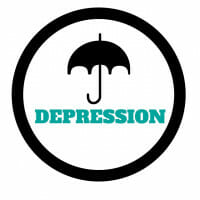
Help Is Available
There are times when everyone feels sad or upset, but these feelings usually only last a short time and pass within a few days.
With depression, these feelings last longer and interfere with your day-to-day life.
Depression is a common and serious illness that affects the brain. The parts of the brain involved in mood, thinking, sleep, appetite and behavior appear different in people with depression compared to those without it. See images here.
It can be difficult for people with depression to seek treatment. The majority, even those with the most severe depression, can get better with treatment. Medications, psychotherapies and other methods can effectively treat people with depression. Take some time to watch this inspiring TED Talk about a student with depression and his path to recovery.
Depression has multiple causes, but the most likely are genetic, biological, environmental and psychological factors. Depression can run in families, but depression can also occur in people who have no family history. Some genetics research indicates that risk for depression results from the influence of several genes acting together with environmental or other factors.
In addition, trauma, loss of a loved one, a difficult relationship or any stressful situation may trigger a depressive episode. Other depressive episodes may occur with or without an obvious trigger.
Symptoms of Depression
- Persistent sad, anxious or empty feelings.
- Feelings of hopelessness or pessimism.
- Feelings of guilt, worthlessness or helplessness.
- Irritability and/or restlessness.
- Loss of interest in activities or hobbies that were once pleasurable.
- Fatigue and decreased energy.
- Difficulty concentrating, remembering details and making decisions.
- Insomnia, early-morning wakefulness or excessive sleeping.
- Overeating or loss of appetite.
- Thoughts of suicide or suicide attempts.
- Aches or pains, headaches, cramps or digestive problems that do not ease even with treatment.
What to Do
- If you are worried about your mood or that of a friend, take an anonymous screening.
- If you are in a life-threatening situation or know someone who is, call Merrimack police immediately at 978-837-5911.
- Other resources include the National Suicide Prevention Lifeline (800-273-8255) and the Crisis Text Line (text “START” to 741-741).
- Read our guide about how to support a friend with depression or how to respond to someone expressing thoughts of suicide.
- Just as you would seek treatment for a physical illness, it’s important to seek treatment for depression as well. Call Hamel Health and Counseling Center at 978-837-5441 to set up an appointment.
Adapted from “Depression.” NIMH RSS. U.S. Department of Health and Human Services, 2013. Web. 4 Sept. 2015.

